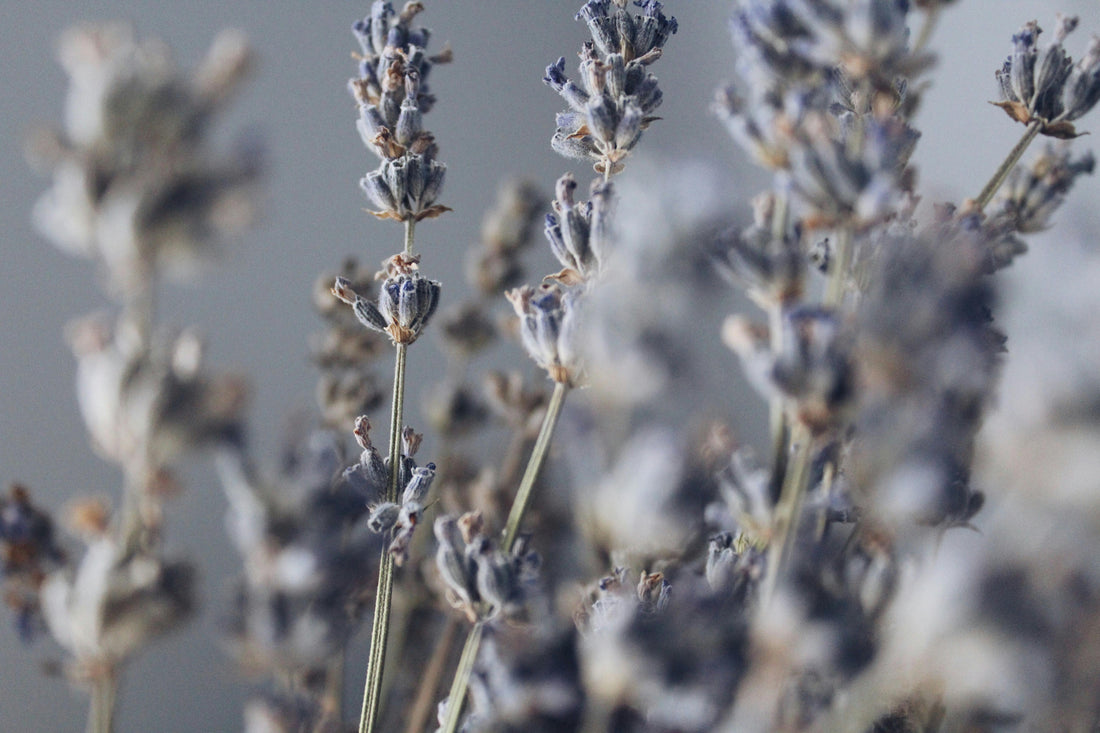
Lavender
Share
Lavandula, also known as Lavender is a well-known and cherished herb in the world of herbal medicine and has been traditionally used worldwide for centuries. This warm and inviting plant emanates a gentle and calming presence that is nostalgic to so many. Known for its relaxing and soothing properties, lavender is a time-tested herb for relaxation and promotion of sleep. Lavandula is a genus of 47 known species of perennial flowing plants in the mint (Lamiaceae) family.
Folklore
Lavender is a plant that is indigenous to the mountainous regions of the countries surrounding the western European part of the Mediterranean. When early travelers brought it back from their journeys, the plant began to spread fairly rapidly to other parts of the world. By the sixteenth century, lavender had already become a much-loved plant in English gardens. The first lavender plants found in America were introduced sometime after the arrival of the first European settlers. It is said that Lavender was used by the Ancient Egyptian people for mummification and as a popular fragrance.
While Lavender's name may evoke images of vibrant purple blossoms, its botanical essence remains distinct, characterized by its delicate flowers and soothing aroma. This aromatic perennial herb stands as a testament to nature's bounty, offering comfort and support to those seeking natural remedies.
Medicinal Uses
The medicinal virtues of Lavender are primarily found in its flowers, revered for their calming and mood-balancing properties. Known for its analgesic, anti-inflammatory, and antimicrobial effects, Lavender serves as a gentle tonic for the body and spirit, providing relief from stress, tension, and discomfort.
Lavender can be a wonderful remedial herb for burns due to its antibacterial properties and its potential to promote the body's natural ability to make collagen.
Whether steeped in a calming tea or distilled into essential oil, Lavender offers solace and serenity to the body and mind, soothing tension and promoting relaxation. Its soothing yet potent nature addresses a myriad of ailments, including anxiety, insomnia, headaches (generally for those who have a cold imbalance), digestive issues, nervous tension, minor cuts, wounds, and burns.
Renowned for its calming properties, Lavender proves invaluable in promoting restful sleep and alleviating symptoms of insomnia. Its soothing effects extend beyond the physical realm, offering comfort and relief to those grappling with emotional and mental tension. A simple moment of smelling the essence of Lavender can be potent for bringing ease and comfort to the mind. Lavender serves as a symbol of serenity and renewal, infusing every interaction with a sense of tranquility and grace. As a reminder of the healing power found within the natural world, Lavender inspires us to embrace wellness in all its forms, fostering a deeper connection to ourselves and the world around us.
Energetics of Lavender
Lavender is warming and drying, because of these energetics, it can be an exceptional ally for those that have cooler and damper constitutions. Lavender can be a particularly powerful herb for people who experience migraines and have a cooler, damp constitution. Due to the drying and warming constitution of Lavender, this may be a useful herb when experiencing a type of headache that is accompanied by feelings of coldness, tiredness, heaviness, and a sharp feeling that is of a cold and dry nature.
Infusions can be a helpful way to calm digestive problems, particularly indigestion. Personally, It wouldn't be the first herb of choice for digestive issues but for someone who has cold, sluggish digestion, Lavender could be a useful herb for warming the system.
As a respiratory ally, Lavender can support clear breathing and respiratory health, promoting ease and comfort in times of congestion. This is because of the drying and warming nature of lavender. Lavender would not be an appropriate herbal remedy for someone experiencing respiratory issues of a hot and dry nature. In herbal medicine, it is important to look at the energetics of a person and a plant and use the plant in a way to attain balance and harmony within the body.
Lavender can be used topically in skincare formulations, offering antiseptic, anti-inflammatory, and antimicrobial properties. It also has antispasmodic effects and can be useful in times of damp and cold ailments. I find Lavender particularly helpful for someone women during menstruation when the body may feel cold, damp, and heavy aiding in a time of nurturing both body and soul.
Lavender embodies tranquility, balance, and restoration, instilling a sense of peace and harmony in those who embrace its warming comfort. Its gentle demeanor and soothing fragrance make it a cherished companion in moments of self-care and relaxation.
